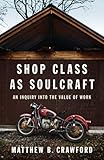GlobalGiving was founded on the realizations that:
- there were entirely too many potential social entrepreneurs all over the world that needed to be given a chance to test their idea of fighting poverty
- for one rock star social entrepreneur, there were probably at least a hundred people who had tried something like, and failed
- international development badly needed more than one Nobel Peace Prize winner in the sixty plus years since colonialism
- and try as we might, there was no way for even the best and the brightest to know who would succeed, and who would fail, much less why
So what the world needed was a platform that made it safe and easy for all these bottom-up efforts to be visible and accountable to the outside world, and whose mission it would be to continuously lower the barriers to entry so that we didn't inadvertently leave another Mohammed Yunus stalled for lack of support. Of course, you can argue for development Darwinism, that the social entrepreneurs who aren't crazy or committed enough to keep going against all odds weren't going to succeed anyway--but clearly there are economies in the world that provide a hospitable environment for small-scale businesses and others that do not, and most of the economies that don't pay the price in lower prosperity overall.
So it's my vision for
GlobalGiving that we play a small role in making social entrepreneurship just a little less crazy, a little less quixotic, and that we thereby make it possible for more innovation and change to happen in development. We won't know ahead of time what those innovations will be. We won't even know who will lead those innovations. We might know if someone one day can trace a rock star social entrepreneur back to their beginnings on
GlobalGiving, but there's no guarantee we will be directly responsible, nor even that they might have succeeded without us. So it comes down to a matter of faith--an ironic position for me, as basically a non-believer with a Buddhist heritage.
This is, of course, a restating of Dennis's latest
post (which in turn is really a
hat tip to Bill Easterly), but here I am restating what we're about because we had two retreats last week, and in reiterating what inspired us to start GlobalGiving, I was struck by the fact that most of my colleagues encouraged me to state it, and state it again. So here it is.
(It's also a way for me to get back to blogging. I realized how bad it was when I saw that I had unmoderated comments from June--eek. Eli, Dibyendu, my apologies!)




